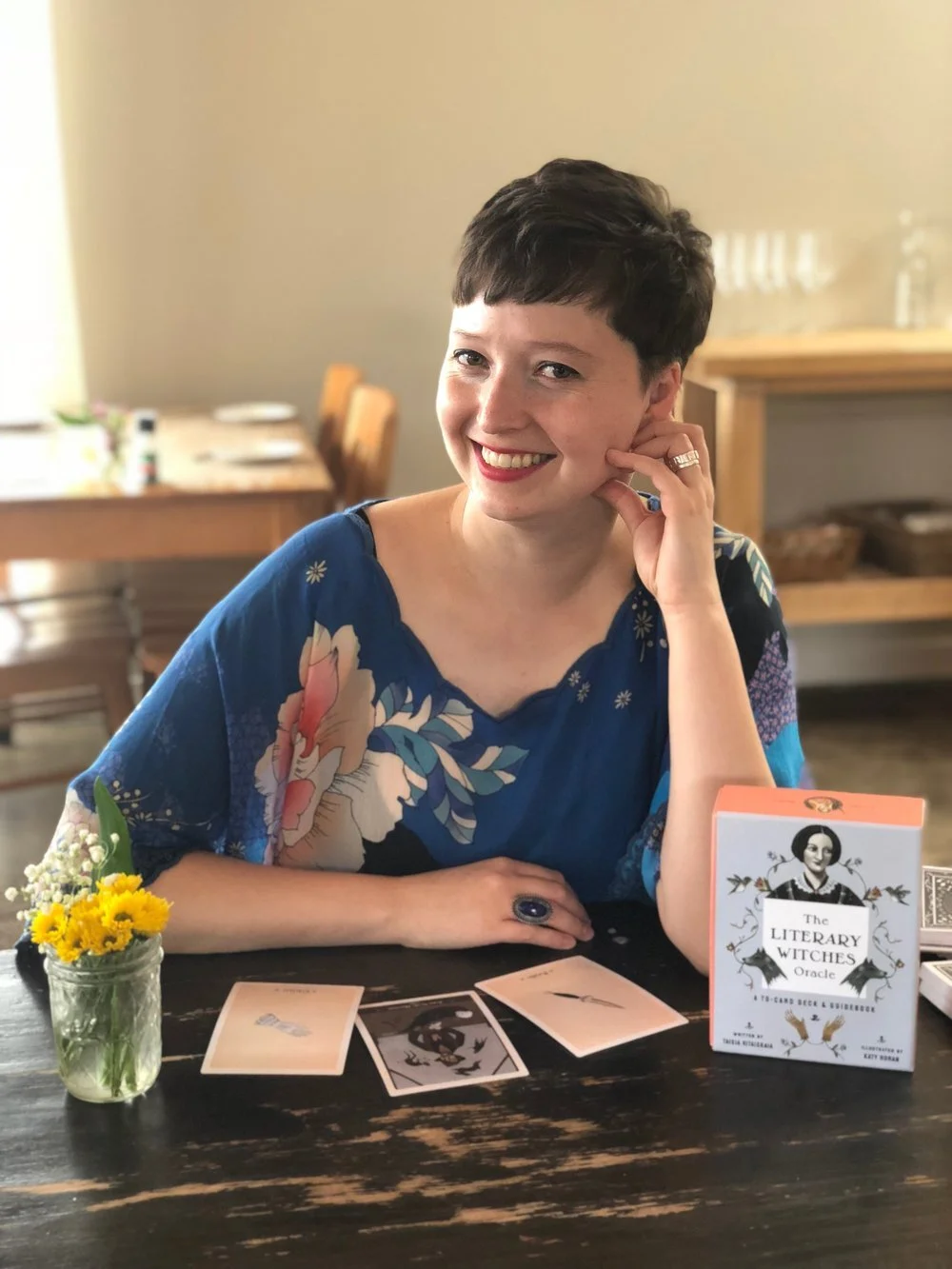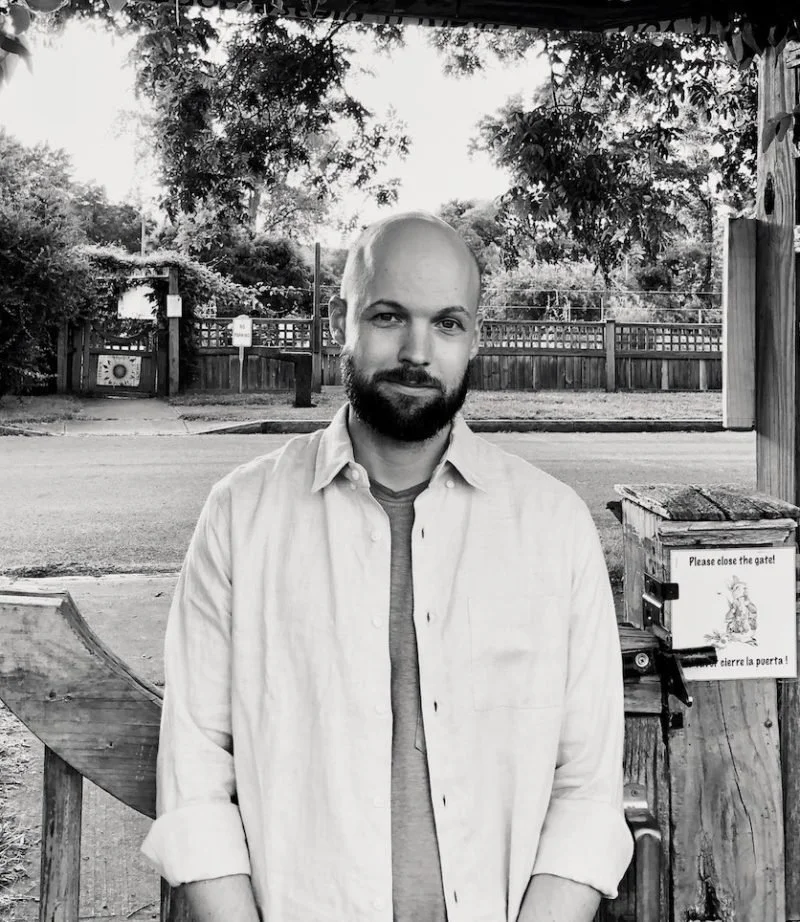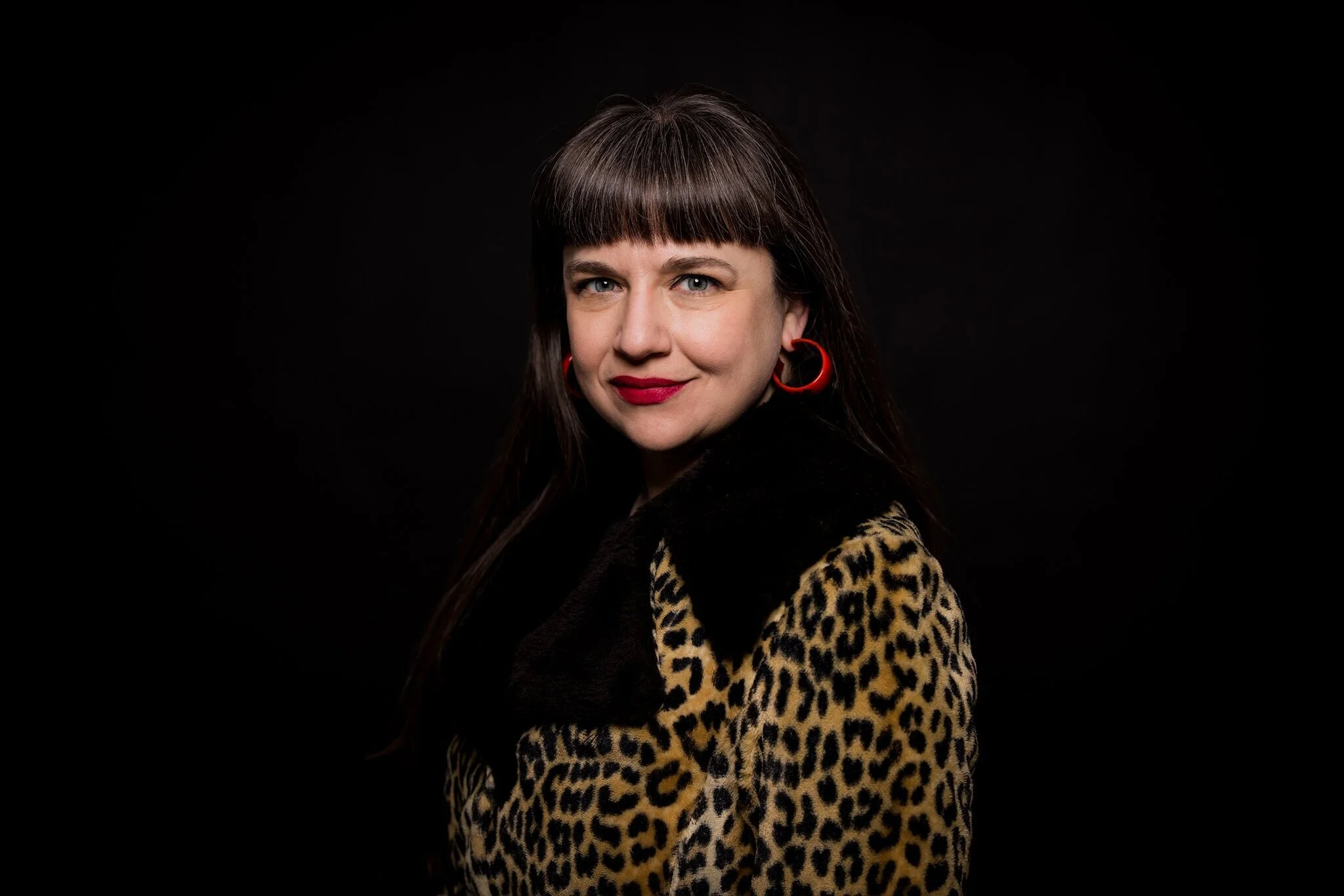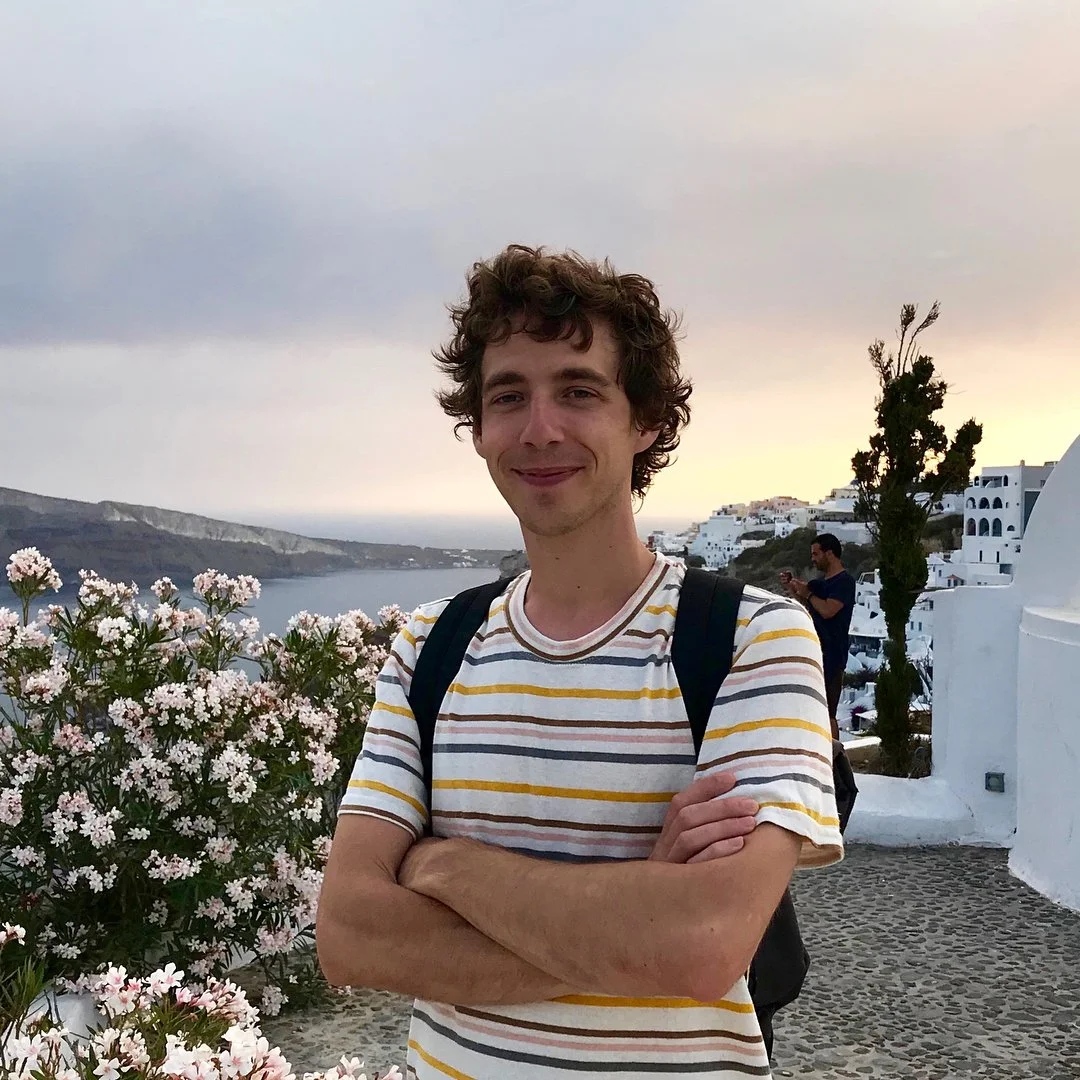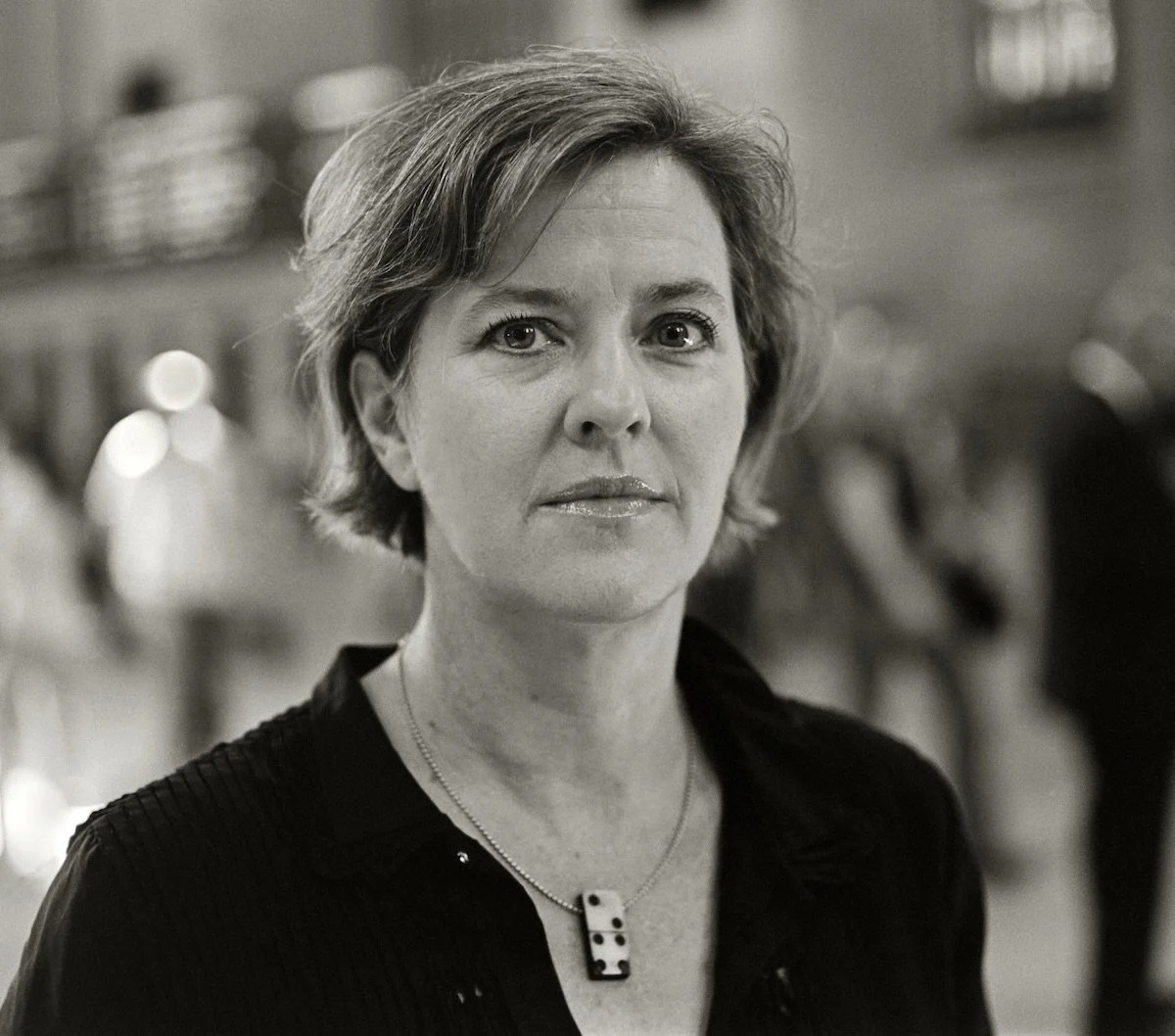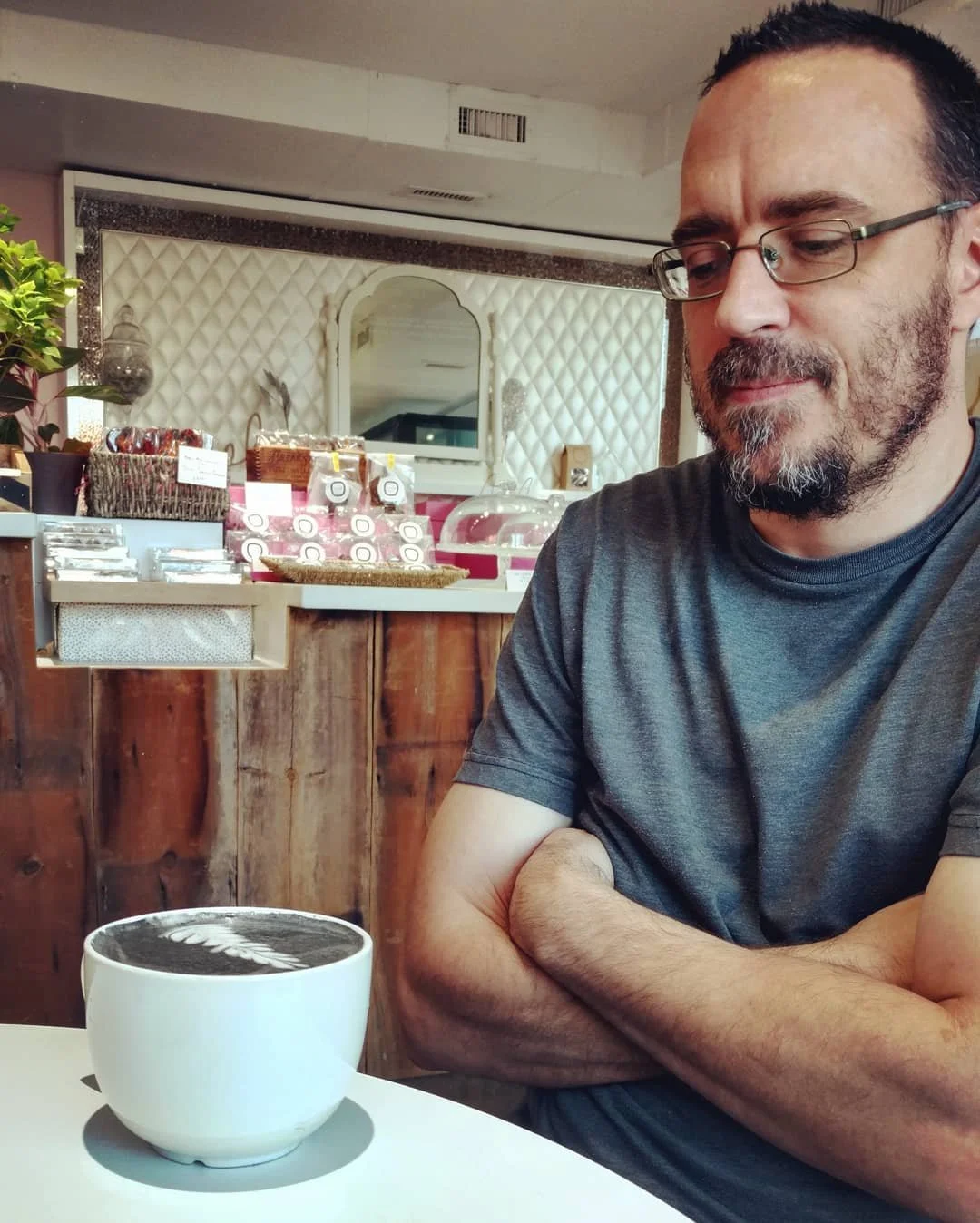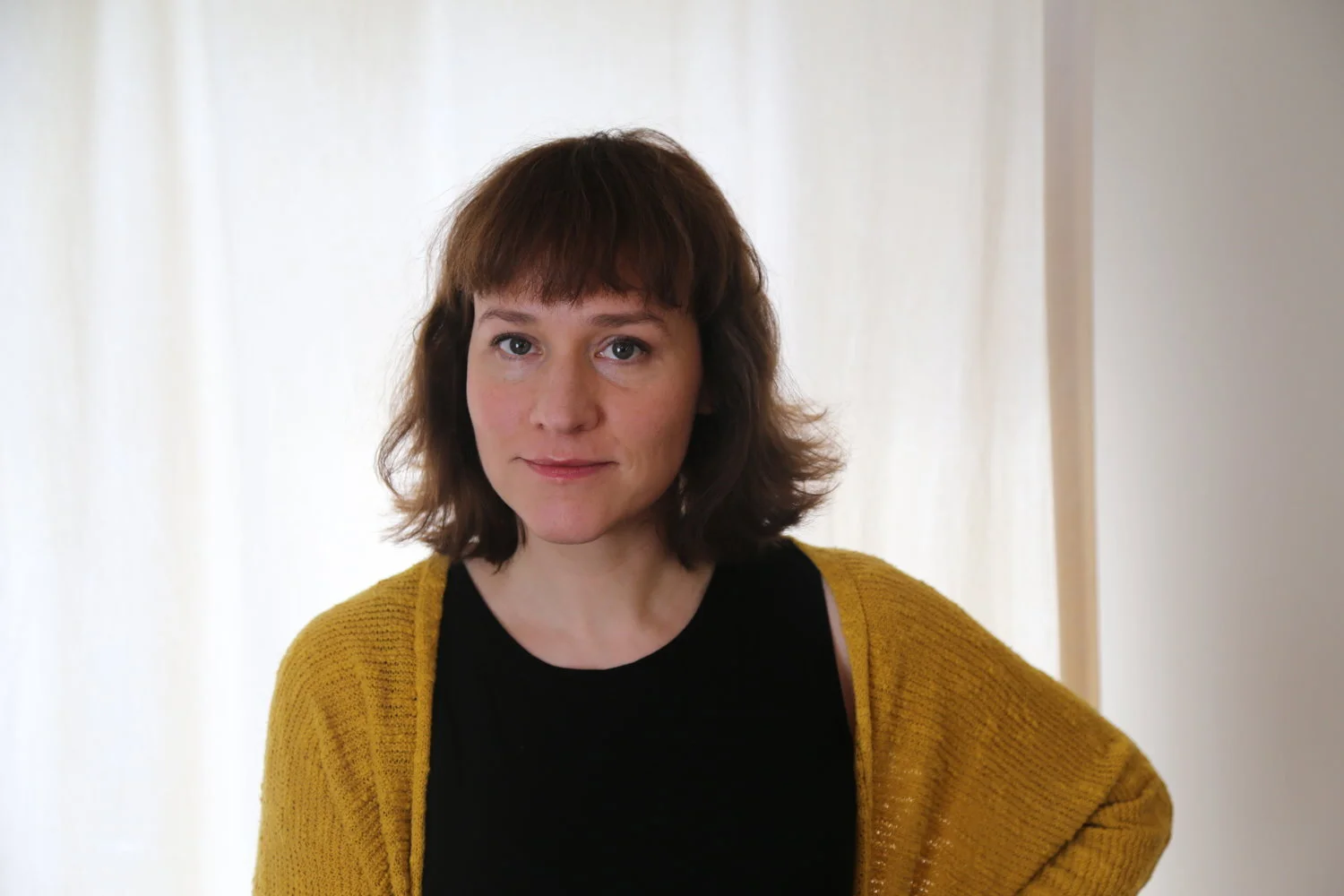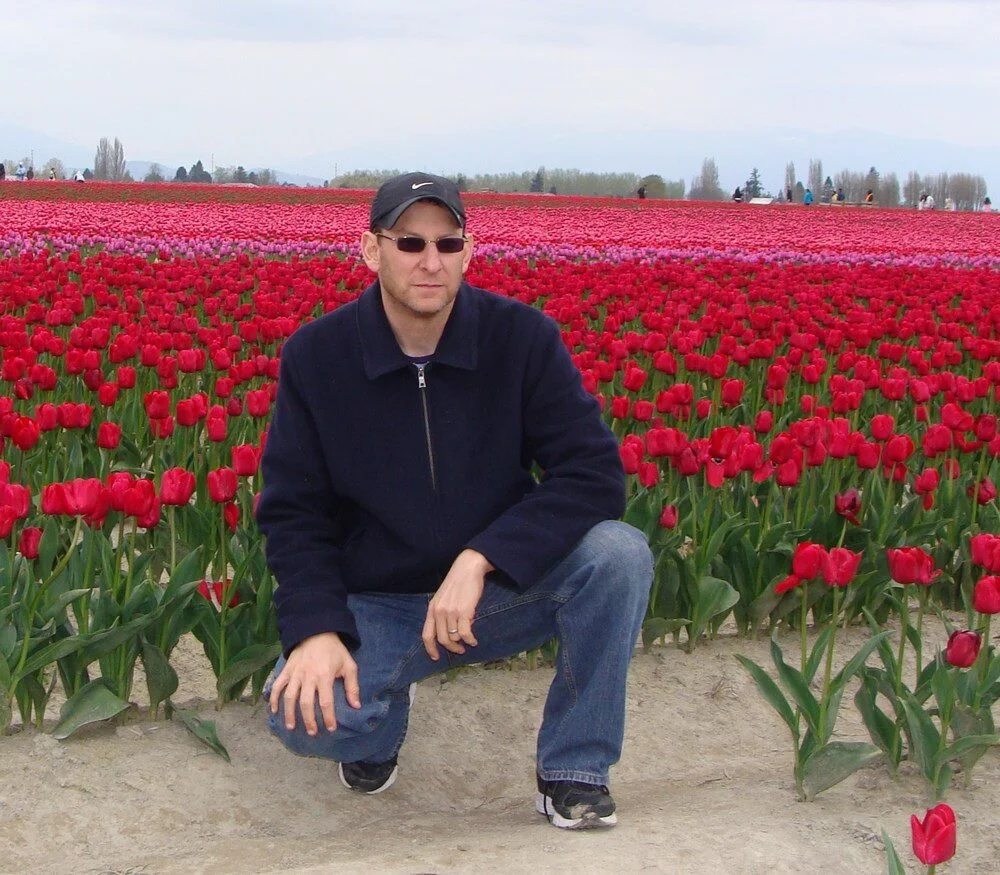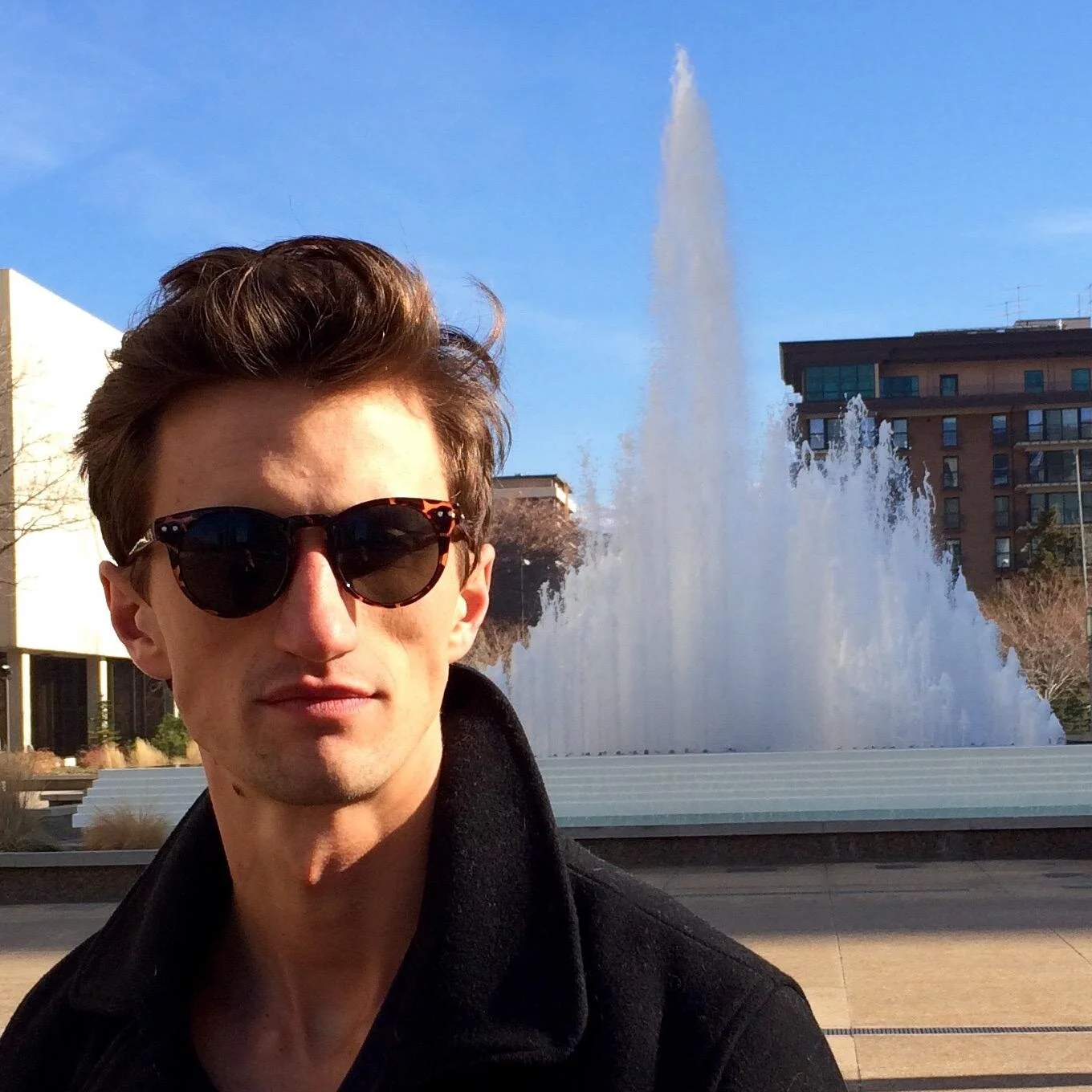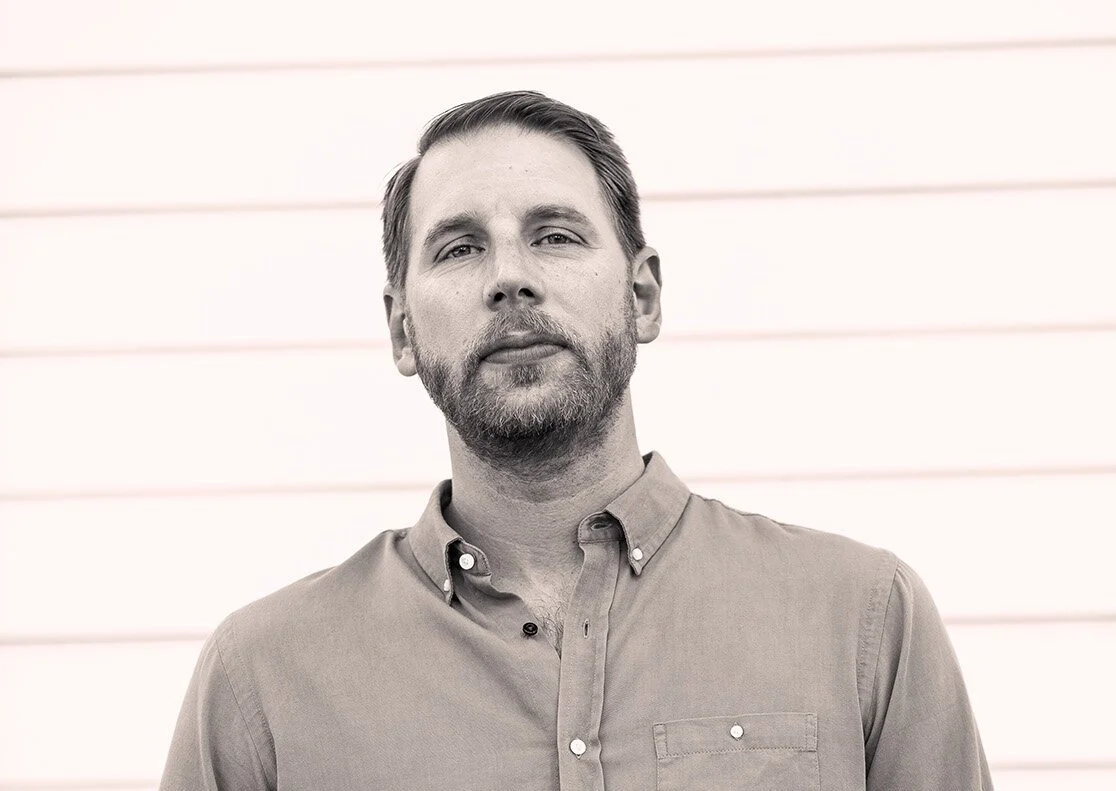Taisia Kitaiskaia is a folklorist, a fabulist, a fairytale teller of the highest regard. Last year she released her magical debut poetry collection, The Nightgown & Other Poems (Deep Vellum). In the same year, she released her second installment of Ask Baba Yaga, an advice column offering ‘Poetic Remedies for Troubled Times’. Releasing two books in the same year was not new for Kitaiskaia, who also released two books back in 2017: the first offering of Ask Baba Yaga, as well as the acclaimed anthology Literary Witches: A Celebration of Magical Women Writers. Magic abound, so let’s say it again: magic. I spoke with Kitaiskaia about her recent book(s), visual art (possums galore), Baba Yaga, a novel-in-progress, and much, much more.
from The Nightgown & Other Poems
To get the ball rolling, what deceased writer would you pick to have visit/haunt you and help you with your writing/revising?
For poetry, Emily Dickinson, though she would be an unsettling visitor. When The Nightgown was published, I did a tarot reading with the Emily Dickinson card from the Literary Witches Oracle deck I created with artist Katy Horan (a companion to our book Literary Witches). I asked Emily if she thought my poetry was good enough, and I’ve kept the card facing out from my bookshelf so she can keep a judgmental eye on me.
Shirley Jackson would be a great guide for fiction. While much of her work is creepy, I imagine that in person she would be chatty and warm like in her humorous domestic essays. I always think about this sentence from one of her pieces on writing, something like, “if you have a blonde character, don’t describe their hair as ‘blonde,’ say ‘yellow.’” This is such a specific and prescriptive piece of advice, it makes me laugh. But I now almost always use “yellow.”
Congrats on your debut poetry collection released last year! I know many poetry debuts tend to tackle the "I" and dive inside of the self, etc. Your collection is more like an attic of timeless fables. A matchbox of fairy tales. I find it so refreshing and surprising. That being said, do you personally see an 'I' in these poems? Has fiction always been the focus?
I see a self in some of the poems, but I agree that the collection is largely about other worlds. Those poems were so fun to write because I could discover human and nonhuman characters but also wander away from them if something else caught my eye.
In fiction, which I’ve been writing for a few years now, there’s of course so much more that the characters need from you. They’re not just apparitions appearing in a landscape, they are the landscape.
via Missouri Review
If you could, grab The Nightgown and select a poem at random. Let us know which one you selected and provide a bit of a backstory if you can.
I opened the book to “Saturday Evening,” a poem I wrote in 2014. This is one of the poems that has more of a coherent self. I wrote this shortly after getting engaged to my husband, the writer Fernando A. Flores.
The poem is a bit of a nightscape, dreamy about the interior and exterior spaces of the night: giants in the creek bed, hot milk in the kitchen. It ends with a feeling of peace and contentment: “My husband, you gold / Round locket with no hinge, / No inside, just the whole.”
In those last lines, it occurs to me that I actually riffed off a poem I wrote as a teen. I was very lucky to study writing in an arts high school, the Interlochen Arts Academy, and one of the assignments my teacher Michael Delp gave us was to create a physical object (not a work of art) and then write a poem. I used the visual art department’s metalsmithing studio to create a simple ring, and then wrote a short poem that included this line: “My ring, you love equally the inside and the outside.”
There are a number of marriage poems in the book. Getting married was important to me in the usual ways, and also in my growth as an artist. It allowed the romantic part of me to simmer down so I could focus on writing.
With two books out in 2020, and two books out in 2017, can we expect this pattern to repeat with two books in 2023?
I wouldn’t say no to that! It’s fun to have twins, though they can be kind of a handful.
Perhaps a better question: can you tell us a little bit about what you're currently working on?
I’m currently working on fiction of varying lengths. As in my poetry, there is some magic and some human and nonhuman creatures. But there’s also a lot more of contemporary life and a little bit more of my Russian heritage and personal experience in the stories.
Along with your poetry collection, you also have two books that channel Baba Yaga for a folkloric advice column. When Baba is answering these questions and providing her own spin of wisdom, is it through a planned practice or divination, or does she appear unexpectedly on the blank page?
When creating the Baba Yaga pieces, I would sit down at a typewriter (an instrument I used only for her) and type the reader’s question on a new page. Then I waited for Baba Yaga’s voice and imagery to form inside my mind. She always showed up; she was very reliable.
Speaking of divination, you are very familiar with the tarot! I recently purchased the Leonora Carrington deck, but I have yet to learn the process. Any advice for a novice?
Yes! The Literary Witches Oracle divination deck came out of my and Katy’s shared love of tarot. The Leonora Carrington deck, which I’ve been using over the past few months, is fabulous. I began learning tarot through taking a one-off class with friends, practicing with those friends, and reading books like Rachel Pollack’s Seventy-Eight Degrees of Wisdom.
I would recommend learning a bit about the symbolism behind the cards and then letting enjoyment of the imagery and intuitive associations guide the story of each spread. I also tend to read tarot not for telling the future, but for understanding the present.
Do the woodland beasts and creatures know about Baba's advice column? Or does she keep it a secret within that world?
Haha! I can’t imagine that she would deem the column important enough to talk about. She’s got bigger fish to fry. Maybe she’s mentioned it once or twice to her old man friend, Коще́й Бессме́ртный (Koschei the Deathless), when he starts boring her over vodka.
Your husband is also an author. Do you two bounce ideas off of each other / edit each other's work? Or is it more of a divided practice until you have something worth sharing?
Yes, creativity is at the heart of both our lives and our relationship, and we keep each other inspired and focused. Fernando will often come in waving his hands around and saying that something wild just happened in his novel and share some juicy details. I’ll share my process, too, and he’s great at helping me and others work out kinks in our narratives. He also gives me many of my titles--I am terrible at titles.
We are each other’s first readers, though he is more private about showing me an actual manuscript until it’s finished, while I am trying to wean myself off of needing immediate feedback.
Within your work, it often feels like your writing is in translation or in conversation with so many other voices and histories and languages. Which is why I think it's so fitting to see your book out with Deep Vellum, where translation is often at the core. I know you write in English, but you were born in Russia and a lot of your source material and inspiration (I imagine) is from outside of the States. Can you speak a bit about translation / non-translation in regards to your writing?
I am so honored to be one of the first poets Deep Vellum has published, and their focus on works in translation means a lot to me. I think that if you know another language, you can feel how each language is a kind of spell, making the world possible in a distinct way. When I speak Russian I experience a different set of moods, sensations, and philosophies than when I speak English.
That experience is both alarming (so many ways of being I am missing out on by only knowing two languages, and one poorly at that!) and exciting. In poetry, it has given me a bit of an outsider’s perspective on English, making me want to put a lot of pressure on the language, to see it bend and squirm.
Away from the page and into other art, what albums/artists/plays/films have captivated you in recent months?
We mentioned Leonora Carrington earlier, and her work has had me hooked for a long time, but also in a renewed way because of the tarot deck and reprinting of her novel The Hearing Trumpet. The Deborah Roberts show at The Contemporary Austin made a big impression on me this summer. I love plays and hate how COVID has made them harder to see. On a recent visit, my parents finally convinced me to watch The Americans. Though my parents aren’t Russian spies, the series does make me feel a lot of tenderness for my parents’ experience in America.
In a previous interview, you mentioned the film An Ordinary Miracle. Are there other films – from your past or more modern – that have influenced and shaped your writing of the fantastic?
Several pieces of Soviet children’s animation have been very influential on me. Hedgehog in the Fog by Yuri Norstein is a very beautiful, beloved short film that fills me with wonder for the mystery and beauty of nature, and also has a lot of humor. The zaniness and fairy-tale feeling of other stop motion animation films, such as this one, feel homey to me as well.
If you can, provide a photo of your workspace. What are some essentials while you create?
Lots of tea! I’ve recently added an artist’s easel to my workspace to help with posture. There’s an in-progress possum painting in the photo, but I’ve also been securing a binder to the easel to work on a story through manual cut and paste. I’m cutting up pieces of the rough draft, glueing them onto loose pages, and handwriting in new material.
I’ve never done anything like this before and it’s taking forever, but the tactile part of it is pleasurable and it’s an interesting experiment. Right now it seems to be a lesson in slowing down--I tend to write very quickly, and I’m curious about what happens if I give a piece more time.
For this ongoing author interview series, I'm asking for everyone to present a writing prompt. It can be as abstract or as concrete as you choose.
Since your earlier question reminded me of that experience metalsmithing a ring back in high school, I might offer a version of my teacher’s prompt here:
Do something useful around the house, such as crafting or altering a piece of furniture, gardening, fixing a doorknob that needed fixing. Then, when you’re done with the task but still in that sustained attention mode, write a poem.
In closing, do you have any advice for early writers? Or rather, what's something you would have liked to have known when you first started taking your writing seriously?
When I started taking my writing seriously, I was about fourteen years old, and I was taking it way too seriously. I was in my early twenties when I sloughed off perfectionism and started letting myself play again, returning to the exploratory feeling I had when writing and making art as a child.
Lynda Barry talks about this in her comics, this shift from “Is this thing I’m making any good?” to “I don’t know what this is.” Now, if I catch myself worrying about the quality of a work in progress, I nudge my way into the direction of mystery and risk. As long as I don’t know what I’m doing, I’ll be fine.
Any final thoughts / words of wisdom / shout-outs? Thank you!
Thank you so much for inviting me for this interview, and for reading The Nightgown! I really appreciate your energetic, generous presence in the poetry world.
As a shout out, I encourage folks to check out Deep Vellum’s other poetry titles, including Julie Poole’s lovely Bright Specimen. It’s unexpected and tender, something we could all use right now.
